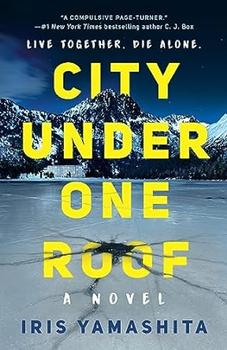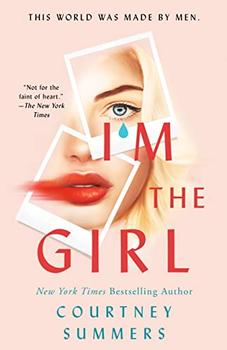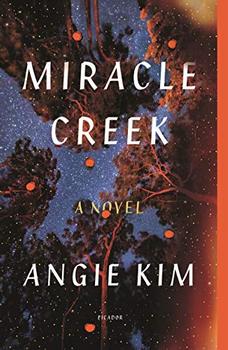Summary | Excerpt | Reading Guide | Reviews | Beyond the book | Read-Alikes | Genres & Themes | Author Bio

Critics' Opinion:
Readers' Opinion:
First Published:
Jan 2023, 304 pages
Paperback:
Jan 2024, 304 pages
 Book Reviewed by:
Book Reviewed by:
Glory Cumbow
Buy This Book
A stranded detective tries to solve a murder in a tiny Alaskan town where everyone lives in a single high-rise building, in this gripping debut by an Academy Award–nominated screenwriter.
When a local teenager discovers a severed hand and foot washed up on the shore of the small town of Point Mettier, Alaska, Cara Kennedy is on the case. A detective from Anchorage, she has her own motives for investigating the possible murder in this isolated place, which can be accessed only by a tunnel.
After a blizzard causes the tunnel to close indefinitely, Cara is stuck among the odd and suspicious residents of the town—all 205 of whom live in the same high-rise building and are as icy as the weather. Cara teams up with Point Mettier police officer Joe Barkowski, but before long the investigation is upended by fearsome gang members from a nearby native village.
Haunted by her past, Cara soon discovers that everyone in this town has something to hide. Will she be able to unravel their secrets before she unravels?
Chapter One
Amy
"And when did you find the body" - Officer Neworth paused for a moment before adding - "parts? When did you find the body parts?"
It was a hand and a foot, to be exact. Or at least Amy thought there was a foot. She hadn't bothered to look inside the boot, but since Officer Neworth said "parts" instead of "part," she assumed there must have been a foot - a bloated, sawed-off, purple-blotched piece of flesh that would have made her dry heave at the sight.
"Yesterday, around eleven a.m.," she said. She was pretty sure she had mentioned this detail at least six times that very day. She'd thought getting pulled out of algebra class would be fun, but now she was having second thoughts.
The boot, she remembered, looked fairly new. It was covered with mud and grime, but the treads weren't that worn and the laces hadn't frayed yet. She hadn't told any of this to Officer Neworth, though. Up until then, she'd tried to say as little as possible, sticking to answers like "Yes," "No," ...
Amy navigates tension with her mother, who is strict and hard-working, always focused on maintaining their restaurant. Lonnie, meanwhile, suffers traumatic childhood memories of witnessing her mother's death and the institution she was sent to live in afterward. As Cara seeks to uncover the truth behind the beached body parts, she is wrestling with grief over the sudden loss of her husband and son on a camping trip, and her quest for answers drives her work. She thinks their deaths might be connected to the case in Point Mettier, but she must overcome her clouded judgment to prevent personal motivations from distracting her. She also must try to not be sidetracked by her growing feelings for local police officer J.B., who is aiding in the investigation. City Under One Roof is filled from cover to cover with compelling stories from engaging characters...continued
Full Review
(661 words)
This review is available to non-members for a limited time. For full access,
become a member today.
(Reviewed by Glory Cumbow).
 Ann Cleeves, New York Times bestselling author of The Long Call and Vera Stanhope novels
A well-crafted novel, told through the eyes of three very different women, with a wonderfully claustrophobic and atmospheric background.
Ann Cleeves, New York Times bestselling author of The Long Call and Vera Stanhope novels
A well-crafted novel, told through the eyes of three very different women, with a wonderfully claustrophobic and atmospheric background. C.J. Box, #1 New York Times bestselling author of Shadows Reel
Iris Yamashita blasts into the world of crime fiction by doing something spectacular: introducing us to a totally unique location and sub-culture. A compulsive page-turner that's both atmospheric and claustrophobic at the same time.
C.J. Box, #1 New York Times bestselling author of Shadows Reel
Iris Yamashita blasts into the world of crime fiction by doing something spectacular: introducing us to a totally unique location and sub-culture. A compulsive page-turner that's both atmospheric and claustrophobic at the same time. Naomi Hirahara, Edgar-winning author of Clark and Division
Electric and fast-paced, this debut thriller is a testament to Yamashita's skills as a storyteller. There's no escape from the isolated Alaska setting for either the murder investigator or the reader. I fell down the rabbit hole and couldn't come out until I read the final page.
Naomi Hirahara, Edgar-winning author of Clark and Division
Electric and fast-paced, this debut thriller is a testament to Yamashita's skills as a storyteller. There's no escape from the isolated Alaska setting for either the murder investigator or the reader. I fell down the rabbit hole and couldn't come out until I read the final page.In City Under One Roof, some characters living in the small town of Point Mettier, Alaska are hiding their status as undocumented North Korean immigrants. If their secret is discovered, they will face deportation. Their fear of being found out, and their general situation, is based in real-life troubles of North Korean immigrants in the United States.
The US has a long history of political interest in and occupation of the Korean peninsula. After the surrender of Japan in World War II, the US and the Soviet Union occupied Korea (the southern and northern parts respectively), which had previously been colonized by Japan. In the ensuing Cold War era, the US attempted to bring capitalistic influence to the southern part of Korea, in ...
This "beyond the book" feature is available to non-members for a limited time. Join today for full access.

If you liked City Under One Roof, try these:

by Courtney Summers
Published 2024
The next searing and groundbreaking queer young adult novel from New York Times bestselling and Edgar Award-winning author Courtney Summers.

by Angie Kim
Published 2020
A thrilling debut novel for fans of Liane Moriarty and Celeste Ng about how far we'll go to protect our families - and our deepest secrets.





The House on Biscayne Bay
by Chanel Cleeton
As death stalks a gothic mansion in Miami, the lives of two women intertwine as the past and present collide.

The Flower Sisters
by Michelle Collins Anderson
From the new Fannie Flagg of the Ozarks, a richly-woven story of family, forgiveness, and reinvention.

The Funeral Cryer by Wenyan Lu
Debut novelist Wenyan Lu brings us this witty yet profound story about one woman's midlife reawakening in contemporary rural China.
Your guide toexceptional books
BookBrowse seeks out and recommends the best in contemporary fiction and nonfiction—books that not only engage and entertain but also deepen our understanding of ourselves and the world around us.